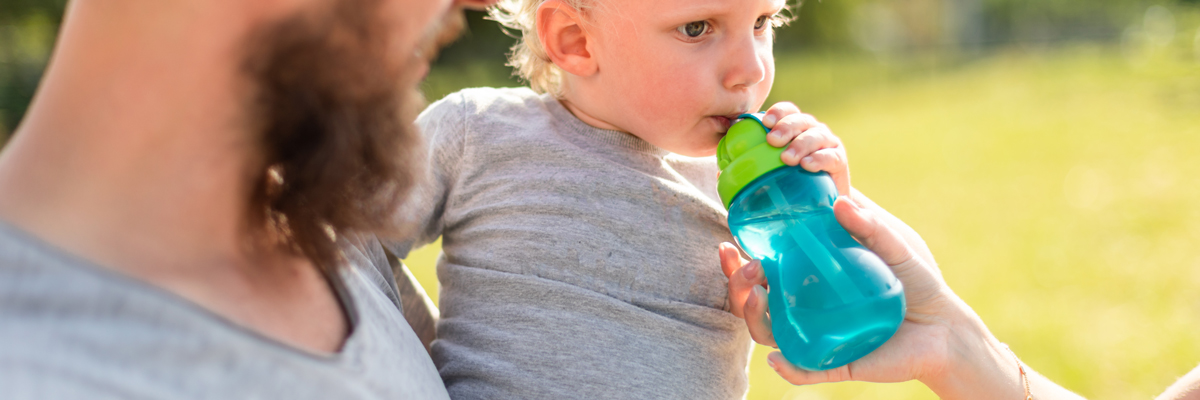
Article at a Glance
Our bodies need water and lots of it. In fact, most of our body is made up of water. In adults, water accounts for 50 to 60 percent of our body. When we are younger it is even more. Water makes up 78 percent of a baby’s body and 65 percent of a child’s.
Everyday we lose water through tears, urine, stool, sweat, and breathing. We then replenish the water and salt lost when we eat and drink.
If you are worried about whether your children are getting enough water everyday, there is an easy way to check. Just take a look at their urine. If it is light yellow, it is a good sign that your child is getting enough water. But if it is a darker yellow, you will want to increase how much your child is drinking a day. Unfortunately being thirsty isn’t always a very good indicator because we often don’t feel thirsty even when we need more water.
There are times when it becomes harder to keep our bodies hydrated. For example, diarrhea, vomiting, fevers, or excessive sweating makes it so that we lose water faster. This means we have to increase our water intake to keep from becoming dehydrated. In these situations it is best to be proactive. It is always easier and healthier to keep your body hydrated than having to play catch up later. Our bodies need water to survive and we can get dangerously ill when we don’t have enough.
Parents should be on the look out for signs of dehydration, especially if your child is sick, if it is hot outside, or your child is engaged in prolonged physical exertion. If your child is showing signs of dehydration you need to rehydrate your child right away.
Signs of mild dehydration:
Signs of severe dehydration (call your pediatrician immediately):
It is best to start preparing your body early by starting to drink extra water beforehand. Then make sure to get a drink every 20 minutes or so.
Be sure to avoid physical exertion in extreme heat and if your child is dehydrated have them rest in the shade until they are rehydrated again. If your child will be involved in exercise lasting over an hour or is in very hot or humid conditions, a sports drink containing salt and other electrolytes is a good idea. Sports drinks are designed to restore a healthy balance after exercise, but they are not intended as a replacement for drinking water because they contain a lot of sugar.
Dehydration is the most important complication from diarrhea and vomiting. The key to keeping your child hydrated is by offering small amounts of an oral rehydration solution (like Pedialyte) at a time. This helps to restore the right combination of sugar and salts needed. Even if your child continues to vomit or have diarrhea, they are still absorbing and maintaining some of the liquid.
More information on how to keep children, breastfed babies, and bottlefed babies hydrated when sick.
During a fever, our bodies lose more water so it is important to stay hydrated. Sore throats can also be a problem because the pain can make some children not want to eat or drink anything. The best way to treat a fever or to ease the pain of a sore throat is by using acetaminophen or ibuprofen (see dosage charts). Popsicles also work well for children who can’t swallow.